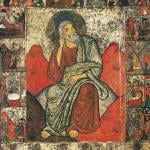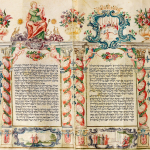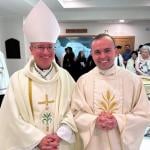Rome, Italy, Apr 29, 2015 / 12:02 pm (CNA/EWTN News).- With experts and global leaders looking to Pope Francis as a moral compass, his upcoming encyclical on the environment could set a key ethical framework for discussion and policies surrounding the topic. “We look to Pope Francis as a great moral leader for all humanity, all people here from every walk of life and every religion. His encyclical will make a huge difference. It's being expected around the world with great anticipation,” Jeffrey Sachs told CNA April 28. “The whole world looks to Pope Francis for inspiration, and that's well beyond the Roman Catholics in the world, it’s all of us,” he said, adding that the Pope's encyclical will play “a huge role” in the climate change discussion. Sachs is the director of the Earth Institute at Columbia University and a special adviser to United Nations Secretary-General Ban Ki-Moon, who was present in Rome for a one-day summit on climate change and sustainable development hosted by the Pontifical Academy for the Sciences. Titled “Protect the Earth, Dignify Humanity,” the April 28 summit focused on strengthening the global consensus surrounding the topic of climate change as something with an adverse effect on every aspect of society. The event also serves as a precursor to the publication of Pope Francis’ anticipated encyclical on environmental degradation and the global effects of climate change on the poor. Expected to be published in mid-late June, the document has already been written and is currently being translated. For Sachs, who is also a member of the Pontifical Academy for the Sciences, the context of sustainable development in the encyclical “is very helpful” in creating a holistic framework that builds economic, social and environmental awareness of the need to take care of the world in which we live. The economy, he said, “must work within a moral framework, a moral framework meaning one that can deliver for the human good. And this makes the Church’s message very important for the entire world.” Although an economy can be considered successful if it multiplies, the moral framework that ensures that the economy is serving the common good is frequently lacking, Sachs observed. U.N. Secretary General Ban Ki Moon also weighed in on the topic during a press briefing after he delivered the keynote speech for the summit. Referring to climate change as “a defining issue of our times,” Ban Ki Moon said that the Pope’s encyclical will come at a “critical” point in the discussion on the topic. Francis is set to address a U.N. Special Summit on Sustainable Development Sept. 25 during his visit to the United States, which is an address Ban Ki Moon said will have “a profound impact.” In a private meeting with Pope Francis ahead of the summit, the U.N. secretary general said he told the Pope that he’s “looking forward to his encyclical as soon as possible…I count on his moral voice and moral leadership.” Cardinal Peter Turkson, head of the Pontifical Council for Justice and Peace, was also present at the event, and highlighted the importance of placing a moral framework at the heart of all policies and discussion on the topic. “Without moral conversion and change of hearts, even good regulations, policies, and targets in the world are unlikely to prove effective,” he told attendees in his speech for the event. If a proper ethical foundation is lacking from the policies and their implementation, then humanity itself will lack the “courage” and moral substance to carry out event simplest proposals, the cardinal continued. In comments made to journalists during a pause in the summit, Cardinal Turkson addressed critics who find issue with the Vatican’s partnership with organizations such as the U.N. that promote population control as a means of combating climate change. Sachs himself is an avid supporter of population control despite his seat on the pontifical academy. In response to the criticism, the cardinal recalled the Second Vatican Council’s emphasis on inviting the Church to find “new ways” of ministering to the world. These new methods of engagement don’t mean running away from the world, he said, but rather establishing a dialogue that works toward “an effective solidarity” with others. What the Church has been invited to do is to explore the ways in which it can come together with secular organizations, and use the “vantage point of its revelation, doctrine and teaching (to) seek to provide some guidance and support for the world.” “So in doing this it’s not inconsistency, but it’s carrying on the mission…that’s what this is.” Although there is a lot of “discussion and dispute” in the area of climate change, the cardinal stressed that it’s an issue that can only be solved by pooling the resources of economic, political and faith leaders. The “moral obligation” of preserving and caring for the planet is one which “extends to all – political leaders, corporate leaders, civil society and ordinary people too,” he said, and noted that the concept of sustainable development is one that the entire community of nations ought to embrace. Ban Ki Moon also emphasized the necessity for collaboration, saying that climate change and sustainable development are issues which demand a “collective action.” “The faith leaders gathered here today, together with the scientists, are united in reminding us that addressing climate change is an urgent moral imperative.” To care for both the climate and those that suffer from the impact of climate change, particularly the poor and most vulnerable, “is a moral responsibility. All people of faith and conscience can agree upon this,” he said. Sachs also weighed in, noting that climate change is “a human challenge at global scale” that requires all parts of the world and society to work together. “It requires the moral leadership of the world’s religions, it requires the science of the world’s climate and earth science experts, it requires the best technologists and technological businesses…working together there are practical solutions, and that’s what we need to find,” he said. He stressed the importance of working from a moral framework in the discussion, and explained that by raising the moral context that will be given in Francis’ encyclical, “we will see that that economic productivity that is worldwide can be harnessed in a far more affective way.” Read more
















